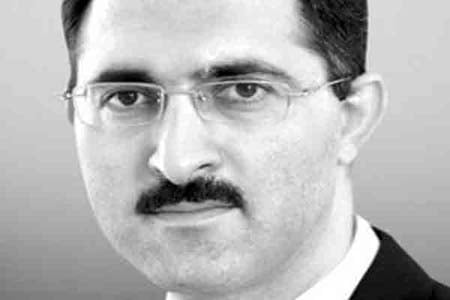Debunking Erdoğan’s smear campaign against Gülen

Date posted: May 2, 2014
ABDULLAH BOZKURT
Having failed to demonstrate any evidence of guilt, let alone a smoking gun implicating Gülen, the Islamist politician Erdoğan launched a smear campaign to discredit the 76-year-old Islamic scholar who has preached the importance of education, science, moderation, dialogue and outreach activities across religions and cultures throughout his life. Since the Dec. 17, 2013 exposure of the graft investigation, Erdoğan’s propaganda machine has been busy disseminating lies, distortions and insults. Angry over his shattered legacy due to the corruption scandal, Erdoğan has scapegoated Gülen and engaged in hateful rhetoric. He frantically tried to build a perception that there is a strong legal case against Gülen, when, in fact, there is none. Going to the extreme, he even floated the idea of requesting Gülen’s extradition from the US, who is facing no judicial investigation, much less a trial.
Fethullah Gülen, who bears no political or criminal responsibility whatsoever in any illegal activity, is unfortunately the victim of a witch hunt conducted by Erdoğan, who drew a bull’s-eye on the back of this Islamic scholar in what the opposition parties describe as part of a deliberate government campaign to shift the public debate away from the corruption scandal. By rehashing old claims about Gülen that were proven to be false in a court of law, perhaps Erdoğan hopes to orchestrate another baseless legal suit against him with fabricated stories and false reporting run in pro-government media. Since Erdoğan is the head of government, with significant powers, his remarks must also be interpreted as a means to pressure the judiciary and negatively influence the Gülen’s ability to receive a fair trial if such a case ever arises in the future.
Haşim Kılıç, the president of Turkey’s top court, the Constitutional Court, lashed out at Erdoğan a week ago for making up claims such as there being a parallel structure or gangs in the judiciary — veiled references to the Hizmet movement inspired by Gülen — saying that the government should produce evidence to back up these claims and investigate thoroughly. Otherwise, he implied, Erdoğan needed to shut his mouth, because the hateful discourse and harsh rhetoric the prime minister has adopted has been taking a toll on members of the judiciary in terms of polarization, tension and divisions. He warned that social harmony is at stake if the executive branch continues to attack the Turkish judiciary.
Erdoğan knows that he has no basis for a legal case against Gülen. A court of law will have to reach an objective, impartial and independent assessment of the facts after examining the credibility of the evidence professionally, in accordance with generally recognized principles of legal interpretation. Since professional courts that comply with the case law of the European Court of Human Rights (ECtHR), whose judgments are binding on Turkey, will not do Erdoğan’s dirty work against Gülen, the prime minister needs to find a court that will blatantly disregard the articles of the Turkish Constitution as well as those of the European Convention on Human Rights (ECHR) and thereby violate the protections built into the legal code, both in terms of procedure and substance.
There is no shortage of friendly judges and prosecutors, of course, especially in the lower courts, where young and inexperienced members of the judiciary are willing to pay their dues to the Erdoğan government by initiating baseless lawsuits. One of the audio tapes leaked during the election campaign exposed a phone conversation in which then-Justice Minister Sadullah Ergin was telling Erdoğan how the government had been able to bring some 2,000 partisan hacks into the judiciary. Therefore, orchestrating a frivolous lawsuit against Gülen will not be that difficult. The judicial proceedings will merely be used as a disguise to execute Erdoğan’s wishes to sideline opponents that are critical of his government, including Gülen. In other words, Erdoğan aspires to abuse criminal proceedings to penalize dissent and opinions that conflict with his way of governing in Turkey.
Acting more like a bitter politician who has found himself with his back against the wall in a massive corruption scandal rather than a statesman, Erdoğan does not seem to mind that the judiciary is politicized. With his public statements already concluding that Gülen is guilty before even beginning an investigation or a trial, Erdoğan has clearly trampled over the principle of presumption of innocence. During a recent interview, Erdoğan even dressed down a reporter for calling the Hizmet movement the “Gülen community,” insisting that the reporter describe the movement as a “gang.” At other times, Erdoğan has even called the movement a terrorist organization. Some ministers have gone even further, suggesting that Gülen should prove his innocence in court. All these statements are clear signals to prosecutors and judges about the desired and expected outcome of any judicial proceedings launched against Gülen.
The Erdoğan government is looking for a court that won’t bother with independence or impartiality and one staffed by young, inexperienced political lackeys. What seems to be a politically orchestrated illegal wiretapping case in Adana, in which a judge ordered the arrest of six police officers last month, may provide some hints as to how the Erdoğan government intends to pursue Gülen. The judge in that case, İbrahim Sağır, is known to be a strong supporter of Prime Minister Erdoğan. The judge’s social media posts in which he expressed his close affinity to the prime minister with comments such as, “Those who don’t love you [Erdoğan] don’t love this nation, either. Because Zionist Israel and its collaborators don’t love you,” tell the tale. In another post, the judge celebrated the victory of Erdoğan’s Justice and Development Party (AKP) in the local elections: “Yes, friends, the real winner is the great Turkish nation. And the loser is Israel, the neocons and their collaborators here [in Turkey].”
Judge Sağır also expressed his dislike of Islamic scholar Gülen and the Hizmet movement in his Facebook posts. On April 1, the judge wrote: “One day, a young man came and presented a petition to me. I asked him what his petition was about. He said he wanted to change his name. I checked his name. It was Fethullah. I asked the man why he wanted to change his name. He said he doesn’t want to share a name with that traitor [referring to Fethullah Gülen]. At first I felt sad. Then I admired the man’s sensitivity.” The higher court suspended the arrest warrants for the police officers and let them go, citing a lack of sufficient evidence. The move infuriated Erdoğan, who slammed the judge that ordered the release of the officers pending trial and called him a member of the gang in the judiciary affiliated with Gülen.
Gülen is not the only one targeted by Erdoğan. Kemal Kılıçdaroğlu, the leader of the main opposition Republican People’s Party (CHP), was summoned by prosecutor Mehmet Demir to testify in a probe after receiving a complaint from Bilal Erdoğan, the son of the prime minister. The subpoena was later canceled, because the CHP leader enjoys parliamentary immunity and cannot be called to testify without the consent of Parliament. CHP spokesman Haluk Koç described the prosecutor’s move as a scheme against the main opposition party and accused the prosecutor of acting under instructions. “Under whose instructions was this plot carried out? […] Where did this person [the prosecutor] get the courage?” Koç asked in a press conference at Parliament, implying that the prosecutor is connected to the government.
Prosecutor Demir is known for making pro-government remarks in the media. Demir had previously called the Dec. 17 and Dec. 25 graft operations a coup attempt against the ruling AKP. “A government can decide if there is a coup attempt in progress or not. All the events that began after the Dec. 17 graft operation are clear signs that the AK Party government is under threat,” he commented.
The government also applies a sort of psychological pressure on Gülen. It orchestrated illegal leaks of a telephone conversation purportedly between Gülen and his associates, allegedly recorded by Turkey’s National Intelligence Organization (MİT). Gülen’s picture gets plastered on front pages with fabricated headline stories in the pro-Erdoğan press every day. Businesspeople who are sympathetic to Gülen’s teachings and ideals have been threatened with audits, license revocations and permit difficulties. These are all part of well-orchestrated government intimidation campaign that was planned and managed by a small cadre of political hacks, reportedly acting on explicit orders from Erdoğan.
Erdoğan knows that his charges against Gülen are untenable in the high judiciary, the Constitutional Court and in the international arena, including the Strasbourg-based rights court, the ECtHR. He also realizes that Gülen is protected by the “ne bis in idem” rule, which bars prosecutors from initiating legal action on charges for which Gülen has already been acquitted unless there is new evidence, and certainly not as part of a politically motivated campaign. Erdoğan has also been making harassing statements since the corruption case was exposed in a futile attempt to get members of Hizmet to give in. He is just trying to buy time until the presidential and national elections while distracting public attention from the corruption scandals.
Source: Todays Zaman , May 2, 2014
Tags: Defamation of Hizmet | Democracy | Turkey |
























